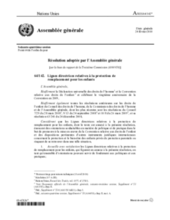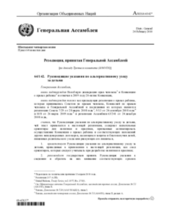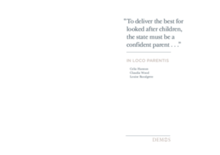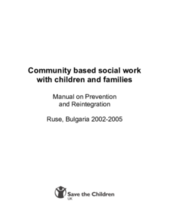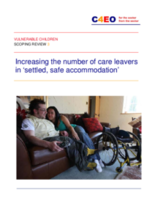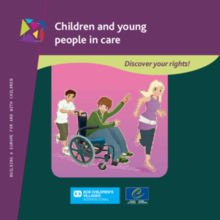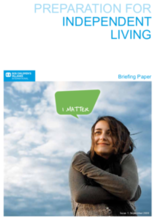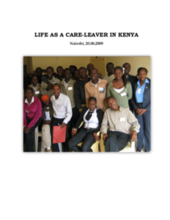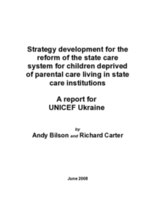Displaying 951 - 960 of 992
Les lignes directrices pour la prise en charge alternative des enfants ont été endorsées par l'Assemblée Générale des Nations Unies, dans le sillage de la commémoration du 20e anniversaire de la Convention des Nations Unies relative aux droits de l’enfant.
The Guidelines for the Alternative Care of Children were endorsed by the United Nations General Assembly on 20th November 2009, in connection with the 20th anniversary of the UN Convention on the Rights of the Child.
This report by the UK-based independent think tank, Demos, considers what the UK care system would look like if it were reconfigured to avoid the delay, instability, and abrupt transitions many young people experience. It demonstrates how this type of system could also be less costly to the states in both the short and long term.
Guidance and forms on preventing institutionalization of children and promoting family unification. The manual includes good practices and lessons learnt, training plans, care planning forms, and assessment guidance.
This scoping study assesses the nature and extent of the evidence base in relation to increasing the number of care leavers in ‘settled, safe accommodation’. The Social Care Institute for Excellence (SCIE) carried out the study on behalf of the Centre for Excellence and Outcomes in Children and Young People’s Services (C4EO), between November 2008 and February 2009.
This booklet is designed for children and young people in care to explain how alternative care works, what their rights are as young people in care and whether these rights are being respected.
This paper examines the efficacy of Independent Living (IL) services in the United States in preparing foster youth to live “independently”, and calls into question the appropriateness of an “independence” goal for youth aging out of foster care.
First briefing paper of series, aims to share good practices and information exchange on preparation for leaving care and after care support
This report is the result of a workshop held with a group of young care-leavers drawn from ten different charitable children’s institutions or rehabilitation centres and of a questionnaire carried out on the young care-leavers.
This report written for UNICEF identifies the key elements for a strategy to take forward the Government of Ukraine’s programme for the reform of child welfare.

